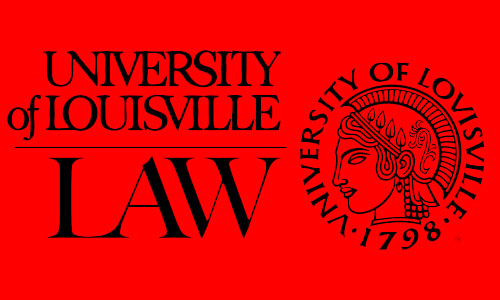Cross-posted at Law and Letters. (This is Part I of a three-part series on personal responsibility in law/graduate school.)If I am not for myself, who will be? If I am only for myself, what am I? And if not now, when?(Hillel the Elder, Pirkei Avot 1:14) When I was in law school, this refrain was often repeated as a "call to arms/responsibility/torch-passing."
"If not you, who?"
If not you, who will:
- do public interest law
- donate to the law school public interest fund to help pay for fellow students' summer public interst work
- volunteer for this legal clinic during the semester/work for it during the summer with a school grant/work for it after law school despite appalling law school debt
- serve ____ community or _____ cause
- join this ethnic/environmental/cause student organization to serve ____ community or ____ cause
- become an
officer of this ethnic/environmental/cause student organization to serve ____ community or ____ cause
- feel personally obligated and responsible to do all of the above
I'm not advocating the complete abdication of responsibility and public service. But it is a strong message to put on the shoulders of young law students, many of whom are naive and idealistic, and more damagingly, with no concept of time management. Most bright young law students got into law school by taking on too much--they loaded up the majors, classes, extra curriculars, honors, theses, interesting summer experiences, volunteer work, causes and ideals.
The problem is that it's much harder to sustain this in law school, which is much different, and much more difficult. The curve, for one thing. Not that college is easy, but for the bright and industrious, hard work (that is not even that hard if there is a natural talent, and there is) is often rewarded with that "A" grade. Not so in law school, which is a different way of learning, analyzing, writing--and
grading. The problem is that most students don't really realize this until after first semester--yet they get the "if not you, who" talk on the first day, and then repeatedly (in org orientations) throughout the first three weeks.
Give the kids a break. And most of them are kids. The averages are different for every school, but many law schools have the bulk of their students coming straight from college. I was all of 21 years old when I started law school (nevermind my co-blogger Paul Gowder, who was shockingly young). They (I) are full of ideals, beliefs, and causes. They know why they are in law school and what they want to do, but not how best to do it. Where their strengths may lie, where their energies may best be allocated. Let them do figure it out, piecemeal. Not by doing everything at once, but by getting settled in as law students, figuring out where their strengths lie, what they are most interested in doing and will be best at--be it the journal, the organization, or the clinic. But don't force everything on them to the point of burn out.
There are a few students who but for the "if not you, who" pep talk would remain complacent. But I don't think there are all that many. Most of those who feel a sense of responsibility will indeed serve ___ cause or ____ community. The problem is not getting them to commit, rather the problem is often keeping them from over-committing to the detriment of their grades, personal lives and general health and sanity. Lighten up. Let the first years settle in, and impress up on the 2Ls and 3Ls to really get involved. Hook 'em while they're young may be a countereffectual strategy, because what may result is burn out and fade.
I'm not at all suggesting that professors, in their organization advisor capacities, cease with the inspiring call to arms during org orientations. I like pep talks. I like knowing an organization's vision and mission and what goals it sets out to accomplish. But all of these platitudes should be taken with a grain of salt the size of a Mack truck. I don't think it's wrong to let first year law students take that first year to focus on what they're really here to do: be law students. Work hard at those classes. Don't feel guilty for having a personal life. Settle into your new neighborhood. Learn the law, and the more you learn, the better able you will be to serve ___ community or ____ cause. I tell incoming law students all the time not to over-commit. Join at most one journal, and at most one other organization. Don't do what I did and join two journals, two organizations, and become a mentor to an undergraduate. I was naive, took on too many responsibilties, and felt personally responsible for too much. And in the end, I was not responsible to myself. The only way to bear the burdens of others is to make yourself stronger, after all.
And it all works out in the end: I haven't becomea completely solipsistic, self-serving egotist. Well, I am an solo personal blogger, but that's not the point. I choose to write in the area of anti-discrimination law, I continue to support public interest work with either my time or resources. Not over-committing doesn't make you a bad person. It makes you a sane person. The causes will still be there when you have the knowledge, grades, and degree to make a difference.
In Part II, I'll discuss a way in which law/grad students should be more responsible, with respect to other students, and Part III, with respect to themselves.





 When we study law we are not studying a mystery but a well-known profession. We are studying what we shall want in order to appear before judges, or to advise people in such a way as to keep them out of court. The reason why it is a profession, why people will pay lawyers to argue for them or to advise them, is that in societies like ours the command of the public force is intrusted to the judges in certain cases, and the whole power of the state will be put forth, if necessary, to carry out their judgments and decrees. People want to know under what circumstances and how far they will run the risk of coming against what is so much stronger than themselves, and hence it becomes a business to find out when this danger is to be feared. The object of our study, then, is prediction, the prediction of the incidence of the public force through the instrumentality of the courts.
When we study law we are not studying a mystery but a well-known profession. We are studying what we shall want in order to appear before judges, or to advise people in such a way as to keep them out of court. The reason why it is a profession, why people will pay lawyers to argue for them or to advise them, is that in societies like ours the command of the public force is intrusted to the judges in certain cases, and the whole power of the state will be put forth, if necessary, to carry out their judgments and decrees. People want to know under what circumstances and how far they will run the risk of coming against what is so much stronger than themselves, and hence it becomes a business to find out when this danger is to be feared. The object of our study, then, is prediction, the prediction of the incidence of the public force through the instrumentality of the courts.
 "'More than anything else, . . .law schools are looking for promising writing.' In order to get a job, a candidate must have written one or two publishable pieces of scholarship. . . . In comparison to the written work a candidate has produced, all other criteria are irrelevant, since they are only meant to be predictors of the candidate's writing. Good scholarship is both necessary and sufficient: if you have it, you don't need to rely on other credentials, but if your scholarship looks unpromising, your other good credentials won't save you." To the extent that the hiring process is (or at least hinges on) an evaluation of scholarly accomplishment and potential, this strikes me as a sound methodological foundation.
"'More than anything else, . . .law schools are looking for promising writing.' In order to get a job, a candidate must have written one or two publishable pieces of scholarship. . . . In comparison to the written work a candidate has produced, all other criteria are irrelevant, since they are only meant to be predictors of the candidate's writing. Good scholarship is both necessary and sufficient: if you have it, you don't need to rely on other credentials, but if your scholarship looks unpromising, your other good credentials won't save you." To the extent that the hiring process is (or at least hinges on) an evaluation of scholarly accomplishment and potential, this strikes me as a sound methodological foundation. "While law schools look for professors who are 'competent lawyers,' often simply graduating from a school like Harvard satisfies this criteri[on] . . . ." Ye gods. In the question-and-answer section of this story, Daryl Levinson reinforced what he perceived (or at least what his audience wanted to hear) as the value of the Harvard or the Harvardesque credential: "out of [1,000 applications a year] you can automatically throw out about half because they didn't go to a top 20 law school (that's just how the academic world works)."
"While law schools look for professors who are 'competent lawyers,' often simply graduating from a school like Harvard satisfies this criteri[on] . . . ." Ye gods. In the question-and-answer section of this story, Daryl Levinson reinforced what he perceived (or at least what his audience wanted to hear) as the value of the Harvard or the Harvardesque credential: "out of [1,000 applications a year] you can automatically throw out about half because they didn't go to a top 20 law school (that's just how the academic world works)."


 Indeed, in even more precise biological terms, law schools' practice of shipping law porn manifests a human variant of
Indeed, in even more precise biological terms, law schools' practice of shipping law porn manifests a human variant of 

